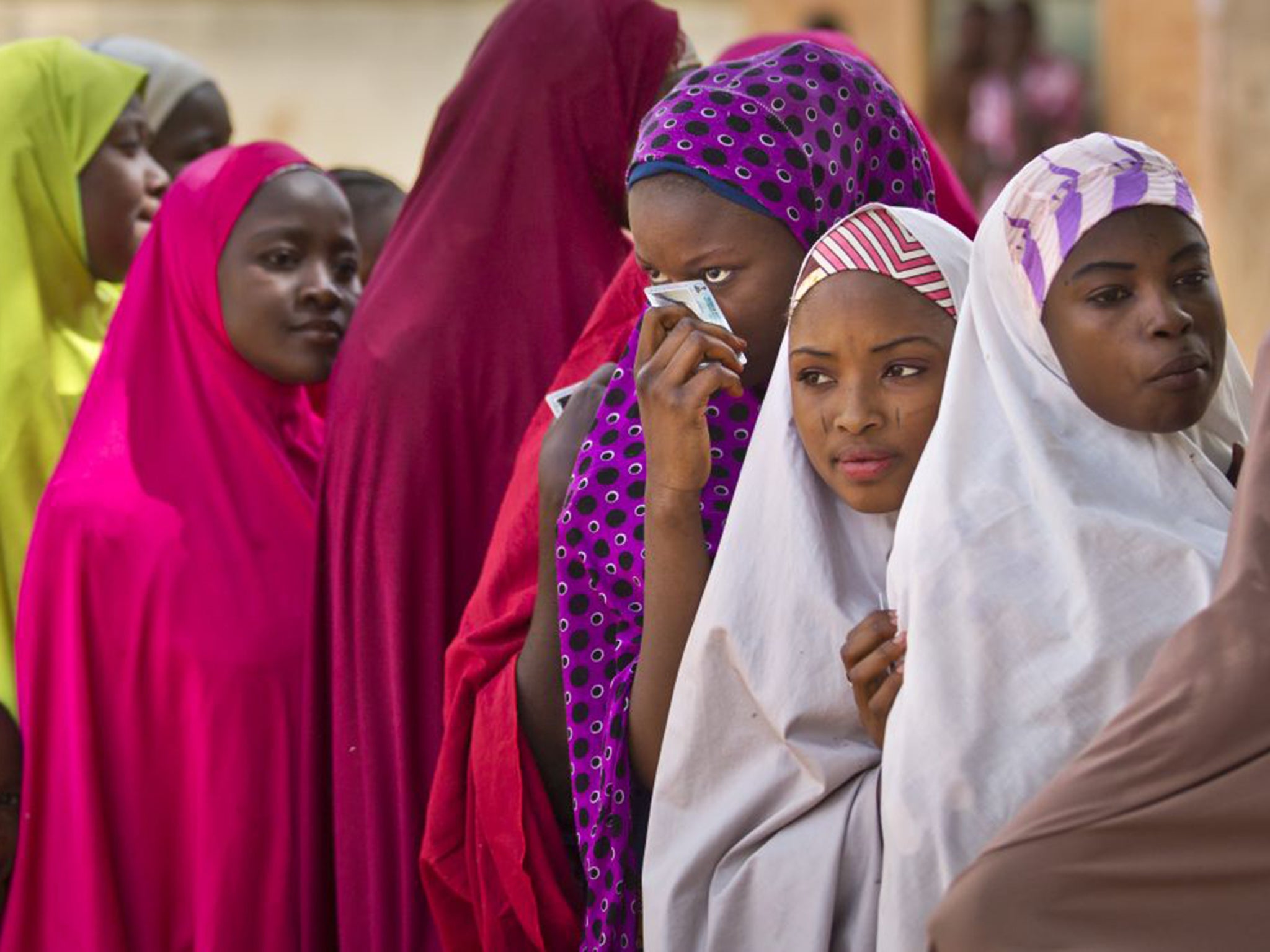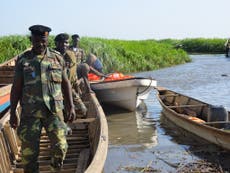The world can’t wait for 2050 to act on the climate crisis – women and girls need action now
The climate crisis has been shown to exacerbate violence against women and girls


Your support helps us to tell the story
From reproductive rights to climate change to Big Tech, The Independent is on the ground when the story is developing. Whether it's investigating the financials of Elon Musk's pro-Trump PAC or producing our latest documentary, 'The A Word', which shines a light on the American women fighting for reproductive rights, we know how important it is to parse out the facts from the messaging.
At such a critical moment in US history, we need reporters on the ground. Your donation allows us to keep sending journalists to speak to both sides of the story.
The Independent is trusted by Americans across the entire political spectrum. And unlike many other quality news outlets, we choose not to lock Americans out of our reporting and analysis with paywalls. We believe quality journalism should be available to everyone, paid for by those who can afford it.
Your support makes all the difference.We don’t know where, when, how, what or who will be affected next by the climate crisis. But one thing is certain: it is a crisis that will affect us all, at some point – irrespective of nationality, age or status. And it is also a crisis that disproportionately affects women and girls.
It is hard to forget my experience during my undergraduate studies, hearing about the 276 school girls who were kidnapped in Chibok: one of the closest states to the shrinking Lake Chad.
This made me an “ecofeminist” – because just as Africa is bearing the brunt of the world’s climate crisis, so too do women and girls bear the brunt of the search for natural resources to stabilise the family. The climate crisis has also been shown to exacerbate violence against women and girls.
In a bid to achieve a peaceful social order, I founded ILeadClimate. (https://twitter.com/LeadClimate ). One of our objectives is for gender rights – we want to empower women through the fight against the climate crisis, and lead us all through conflicts for disarmament and sustainable development.
World leaders talk about taking us to climate neutrality by 2050 – but they also need to raise their ambitions in the short-term. There have already been warnings that global warming could pass “the point of no return” – meaning we must get our emissions to zero before 2050. Waiting until that point is reached could be too late.
We must listen to science – not to greed, or “profit over people”. A focus on profit made from fossil fuels is a win–lose situation. Getting to net zero by 2050 doesn't mean we can ignore climate action in the short-term.
If we want to show the world why we shouldn’t wait until 2050 to get to carbon neutrality, we should look at countries like my own – Nigeria – which is already showing the effects of the climate crisis. Our world is warming up every day, yet we are still at the point of climate “promises”, rather than commitments.
We can’t run away from the reality of the climate crisis. This decade needs to be defined by action. Those of us living in the global south are in a danger zone marked by rising sea levels, severe droughts, threats to our national security, Trans-Saharan terrorism, cyclones, heatwaves, new conflicts – and humanitarian crises.
We’ll be battling all of those issues – and more – if we have to wait for decisive action to bring about carbon neutrality. We might not even be able to save the remaining tenth of Lake Chad from drying out – let alone talk of restoring it.
It is one of the world’s largest lakes and a source of water to millions of people in West Africa, yet has already has shrunk by nine-tenths due to climate change, population growth and irrigation.
I’m an advocate for the restoration of Lake Chad – and for the human rights of those who live in the region that sits in the Sahel, bordered by Nigeria, Niger, Chad and Cameroon.
Sahel, that Lake Chad sits on, was once a fertile land for all, but due to decades of inaction, it is now one of the world’s most degraded landscapes. As a result, people have migrated; displacing 10.7 million away from their livelihoods.
As many as 2.3 million people are food insecure, according to reports; and the numbers of refugees – and insurrectionists – are rising.
The climate crisis is the biggest security and peace issue of our time – and Africa is bearing the biggest brunt, whilst contributing the least to it.
Nigerian farmers can no longer predict rainfall patterns, as they could before. Farmers and herders are fighting over natural resources for grazing and agricultural land, and our national security is being compromised. We risk being thrown into the middle of an ethno-religious war.
We need to act this decade – or never. We can neither isolate, nor quarantine, from the impacts of climate change.
Carbon neutrality by 2050 is a zero ambition plan, in a world currently consumed by the Covid-19 pandemic. And waiting for 2050 for carbon neutrality, when we could act now, is like setting the pace towards a warmer world.
Oladosu Adenike is a Nigerian climate activist, ecofeminist and an advocate for the restoration of Lake Chad.



Join our commenting forum
Join thought-provoking conversations, follow other Independent readers and see their replies
Comments